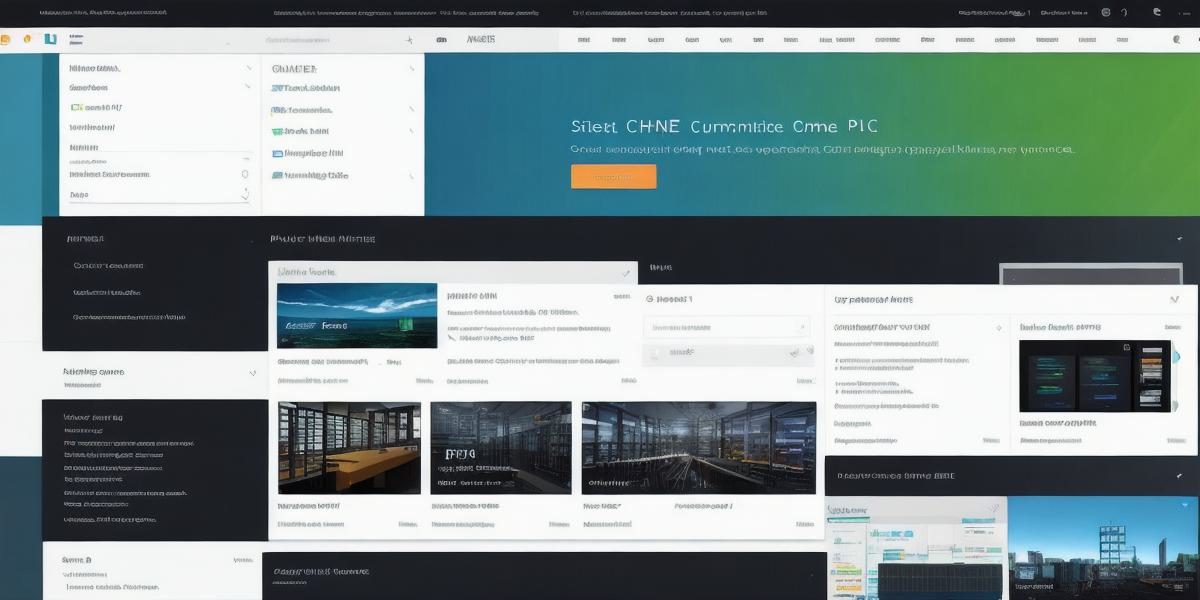The Ultimate Guide to Optimizing cPanel Exclusively for PHP: Tips and Tricks from Experts

If you’re a programmer looking to optimize your web hosting experience, then you’re in the right place. cPanel is one of the most popular web hosting control panels on the market, and it offers a wide range of features and tools specifically designed for PHP developers. In this comprehensive guide, we’ll explore some of the key ways you can use cPanel to get the most out of your PHP development experience.
- Understanding cPanel’s File Manager
One of the most powerful tools in cPanel is its file manager. This allows you to easily manage and edit files on your server, including those related to your PHP applications. By understanding how to use the file manager effectively, you can streamline your development process and make it easier to deploy and maintain your code.
Case Study: Speeding Up Development with cPanel’s File Manager
Let’s say you’re working on a new PHP application and need to make some changes to your server’s configuration files. With cPanel’s file manager, you can easily locate and edit these files without having to leave the control panel. This saves you time and helps you stay focused on your development work.
- Using cPanel’s PHP Manager
In addition to its file manager, cPanel also includes a dedicated PHP manager. This allows you to manage your PHP applications directly from the control panel, including configuring settings, running scripts, and managing backups. By using the PHP manager, you can streamline your development process and make it easier to manage multiple PHP applications at once.
Case Study: Automating Backups with cPanel’s PHP Manager
Let’s say you’re working on a large-scale PHP application that requires regular backups to ensure data security. With cPanel’s PHP manager, you can easily set up automated backups for your application, which saves you time and reduces the risk of data loss.
- Optimizing PHP Performance with cPanel
cPanel offers a range of tools and settings that can help you optimize your PHP applications for performance. These include options for configuring memory usage, managing caching, and optimizing database queries. By using these tools effectively, you can improve the speed and reliability of your PHP applications, leading to a better user experience.
Case Study: Improving Load Times with cPanel’s Performance Optimization Tools
Let’s say you’re working on an e-commerce website that relies heavily on PHP code. With cPanel’s performance optimization tools, you can easily configure your server to handle high traffic loads and reduce load times for your users. This helps improve customer satisfaction and boost sales.
- Securing Your PHP Applications with cPanel
Security is a critical concern for any web application, including those built with PHP. cPanel offers a range of tools and settings that can help you secure your PHP applications against common threats such as malware, hacking attempts, and data breaches. These include options for configuring firewalls, managing user accounts, and monitoring log files.
Case Study: Protecting Sensitive Data with cPanel’s Security Features
Let’s say you’re building a financial application that requires users to input sensitive information such as credit card details. With cPanel’s security features, you can easily secure your application against potential threats and protect user data from unauthorized access. This helps build trust with your users and ensure the long-term success of your application.
Conclusion
In conclusion, cPanel is a powerful tool for PHP developers that offers a range of features and settings specifically designed to optimize your web hosting experience. By understanding how to use these tools effectively, you can streamline your development process, improve the performance and security of your applications, and








